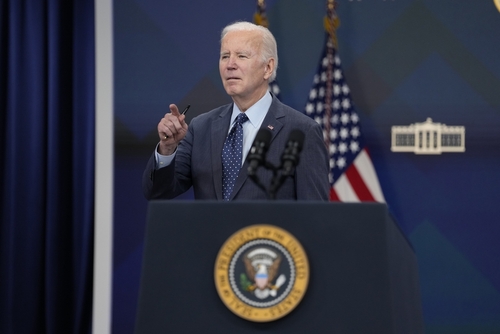Amid heightened tensions, China accuses the United States of breaching their trade truce, alleging severe setbacks in technological and educational collaboration.
At a Glance
- China accuses the U.S. of violating the trade truce.
- The U.S. implements restrictions on AI chips and visas.
- Tensions could hamper future diplomatic negotiations.
- The trade truce temporarily reduced tariffs for 90 days.
China’s Accusations Against the U.S.
China has accused the United States of undermining the trade truce by imposing new technological and educational restrictions. These include control over AI chip exports and the halting of chip design software sales. The U.S. plans to withdraw visas from Chinese students further complicate matters. China insists these actions threaten to hinder its innovation, research, and talent acquisition, potentially leading to intensified geopolitical tensions if left unaddressed.
The trade deal, established last month, involved a 90-day rollback of tariffs and trade barriers. During this period, the U.S. tariffs were reduced to 30%, and China’s to 10%. Initially, tariffs were at 145% and 125% for the U.S. and China, respectively. The truce aimed to de-escalate tensions and allow room for potential permanent agreements. Both sides have since been at odds over compliance, with the U.S. accusing China of slow compliance.
Economic Implications and Responses
China’s Ministry of Commerce labeled the U.S. actions as “baseless,” suggesting that the U.S. exacerbates economic uncertainty by shifting blame onto China. This sentiment reflects the complex dynamics at play, where bilateral economic and trade relations grow increasingly unstable. The allegations complicate any forthcoming diplomatic negotiations intended to address these challenges and resolve the ongoing friction.
“The U.S. side has unilaterally escalated new economic and trade frictions, exacerbating the uncertainty and instability of bilateral economic and trade relations. Instead of reflecting on its own actions, it has turned the blame onto China.” – China’s Ministry of Commerce.
China maintains a near monopoly on rare earth metals, crucial for various industries. This control presents a strategic advantage for China amidst the escalating trade war. The U.S.’s concern over access to rare earth magnets supplements the geopolitical complexities, suggesting a broader field of competition beyond technology and education. China has warned it will protect its rights if the U.S. continues to harm its interests.
Outlook and Potential Outcomes
The confrontation raises doubts about reaching a permanent trade agreement within the stipulated 90 days of the trade truce. Analysts suggest that without significant changes in strategies from either side, diplomatic negotiations will likely face numerous hurdles. The high-stakes game of trade and tariffs continues to evolve, with each nation’s interests and global economic implications at the forefront of this ongoing narrative.
“China said on Monday that the United States had “severely undermined” the trade truce the two countries reached last month, striking back against President Trump’s accusations that it was violating the terms of their agreement.” – China.
The geopolitical landscape is fraught with complexity as both nations navigate the intricacies of maintaining economic welfare alongside technological advancements. With the global market closely watching, any future developments between these two superpowers will undoubtedly carry substantial weight and consequence.






